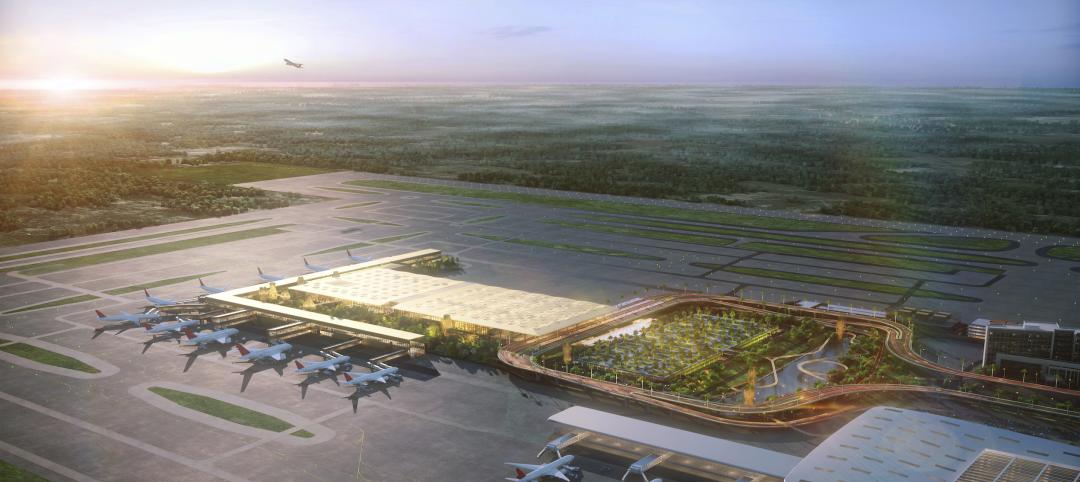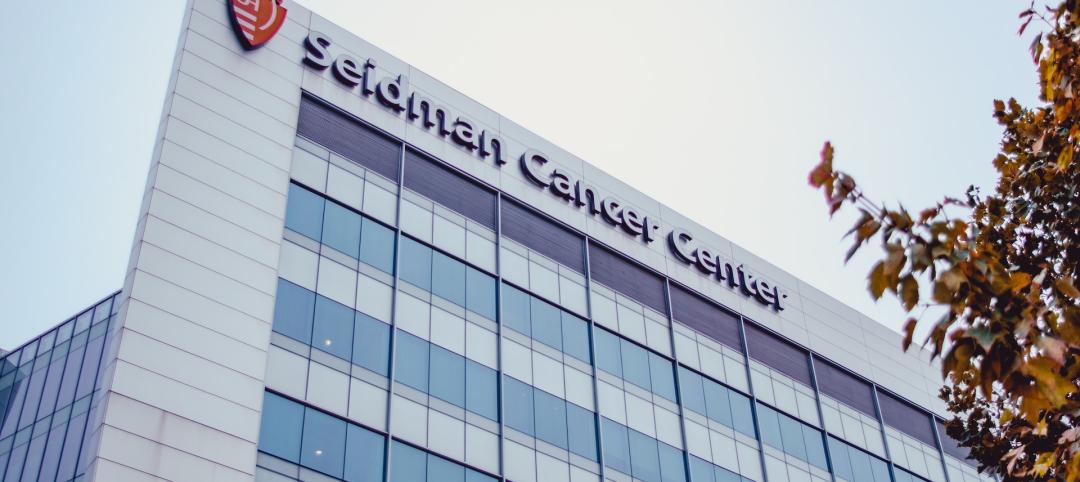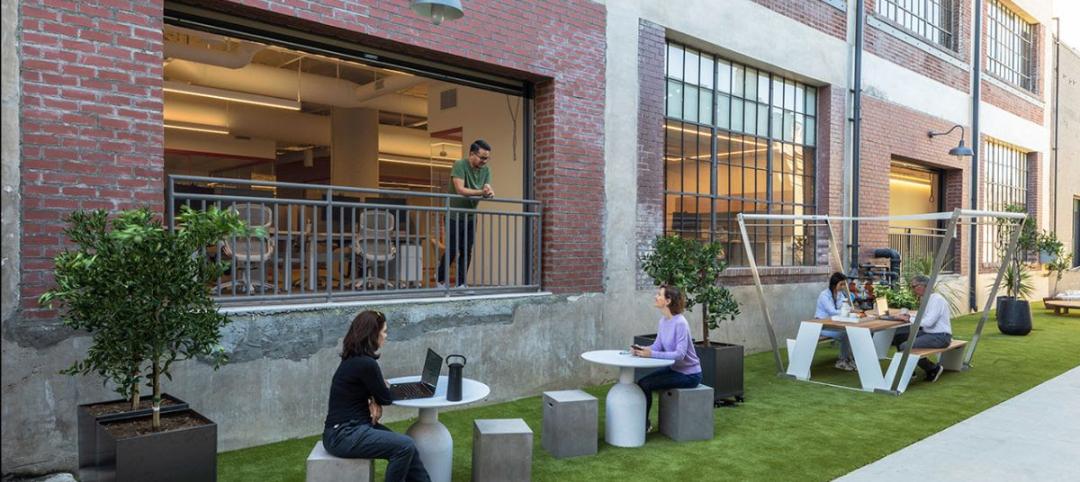A team of Perkins&Will researchers has been awarded a $30,000 grant from the American Society of Interior Designers (ASID) Foundation to enhance their PRECEDE dashboard, an open-source tool that draws on federal data to identify and assess community health priorities within the U.S. by location.
PRECEDE, which stands for Public Repository to Engage Community & Enhance Design Equity, will help designers integrate and translate public health data into design decisions.
“We selected Perkins&Will’s proposal because of its focus on health equity at such a critical time. Their tool paves the way for a future of more equitable public health,” says S. Dawn Haynie, Ph.D., a research fellow for ASID. “It makes the traditionally complex contextual research about a specific site accessible to all designers, not just those with research expertise.”
The CDC estimates that a significant proportion of a person’s health is attributed to the quality of their environment, personal education, and any behavioral constraints that may be impacting their community. Designers have an opportunity to improve community health outcomes by designing according to these factors.
However, access to the nuances within this federal data is limited, thus making it more difficult for designers to integrate such information early in the design process, when diversity and inclusion are most effectively addressed.
Identifying this gap in data and practice, the team first developed a beta version of PRECEDE in spring 2022 in a Microsoft Excel spreadsheet. Compared with similar public health-focused data visualization tools—most coming with limitations like not allowing the user to search by mailing address or not accounting for environmental factors—PRECEDE aggregates multiple sources into an easy-to-understand resource hub complete with best practices informed by successful case studies.
The research team first identified over 40 design-relevant health indicators that could be improved by interior design, such as obesity, diabetes, and asthma, in areas like material selection, ventilation, and circadian lighting.
“When we walk in the door, we bring our health conditions with us,” says Dr. Erika Eitland, director of Perkins&Will’s Human Experience Lab. “This tool allows us to use publicly available data to identify health priorities for our communities without having to ask invasive questions about individuals’ health.”
Using PRECEDE tool on projects
Case studies demonstrate PRECEDE’s ability to impact a wide range of project types and populations. For a Durham, North Carolina school, designers discovered higher-than-average breast cancer deaths in the area and responded with healthier materials to limit teachers’ and staff’s exposure to known harmful materials.
Similarly, at a national nonprofit’s Washington, D.C. headquarters, PRECEDE brought forward active workstations that encourage movement to mitigate the city’s high rates of cardiovascular disease and high blood pressure.
“This is a powerful example of how a multidisciplinary team from interiors to urban design and public health to architecture can de-silo research and support systems-level solutions,” adds Eitland.
Now, the team will continue to develop the tool outside of Excel using data analytics platform Power BI and an application programming interface that will retrieve data from their sources directly. Harvard Graduate School of Design, Massachusetts Institute of Technology, and Wentworth Institute of Technology will act as academic partners throughout the process. The PRECEDE dashboard pilot will then be delivered to ASID Foundation in September 2023., after which it will make the rounds at conferences and within partnerships.
Joining Eitland on Perkins&Will’s awarded team are David Cordell, Amina Helstern, Tyrone Mashall, and Devika Tandon. The ASID Foundation Research Committee selected winning projects based on the significance of the study, innovation in research questions, strength of methodology, applicability of findings, and more.
Related Stories
Airports | Apr 18, 2023
India's mammoth new airport terminal takes ‘back to nature’ seriously
On January 15, 2023, Phase 1 of the Kempegowda International Airport’s Terminal 2, in Bengaluru, India, began domestic operations. The 2.75 million-sf building, designed by Skidmore, Owings & Merrill (SOM), is projected to process 25 million passengers annually, while providing its travelers with a healthier environment, thanks to extensive indoor-outdoor landscaping that offers serenity to what is normally a frenzied experience.
Resiliency | Apr 18, 2023
AI-simulated hurricanes could aid in designing more resilient buildings
Researchers at the National Institute of Standards and Technology (NIST) have devised a new method of digitally simulating hurricanes in an effort to create more resilient buildings. A recent study asserts that the simulations can accurately represent the trajectory and wind speeds of a collection of actual storms.
Green | Apr 18, 2023
USGBC and IWBI unveil streamlined certification pathway for LEED and WELL green building programs
The U.S. Green Building Council, Green Business Certification Inc., and the International WELL Building Institute released a streamlined process for projects pursuing certifications for the LEED green building rating system and the WELL Building Standard. The new protocol simplifies documentation for projects that are pursuing both certifications at the same time or that have already earned one certification and are looking to add the other.
K-12 Schools | Apr 18, 2023
ASHRAE offers indoor air quality guide for schools
The American Society of Heating, Refrigerating and Air-Conditioning Engineers (ASHRAE) has released a guide for educators, administrators, and school districts on indoor air quality. The guide can be used as a tool to discuss options to improve indoor air quality based on existing HVAC equipment, regional objectives, and available funding.
Data Centers | Apr 14, 2023
JLL's data center outlook: Cloud computing, AI driving exponential growth for data center industry
According to JLL’s new Global Data Center Outlook, the mass adoption of cloud computing and artificial intelligence (AI) is driving exponential growth for the data center industry, with hyperscale and edge computing leading investor demand.
Healthcare Facilities | Apr 13, 2023
Healthcare construction costs for 2023
Data from Gordian breaks down the average cost per square foot for a three-story hospital across 10 U.S. cities.
Higher Education | Apr 13, 2023
Higher education construction costs for 2023
Fresh data from Gordian breaks down the average cost per square foot for a two-story college classroom building across 10 U.S. cities.
K-12 Schools | Apr 13, 2023
Creating a sense of place with multipurpose K-12 school buildings
Multipurpose buildings serve multiple program and functional requirements. The issue with many of these spaces is that they tend not to do any one thing well.
Healthcare Facilities | Apr 13, 2023
Urgent care facilities: Intentional design for mental and behavioral healthcare
The emergency department (ED) is the de-facto front door for behavior health crises, and yet these departments are understaffed, overwhelmed, and ill-equipped to navigate the layered complexities of highly demanding physical and behavioral health needs.
Office Buildings | Apr 13, 2023
L.A. headquarters for startup Califia Farms incorporates post-pandemic hybrid workplace design concepts
The new Los Angeles headquarters for fast-growing Califia Farms, a brand of dairy alternative products, was designed by SLAM with the post-Covid hybrid work environment in mind. Located in Maxwell Coffee House, a historic production facility built in 1924 that has become a vibrant mixed-use complex, the office features a café bordered by generous meeting rooms.

















